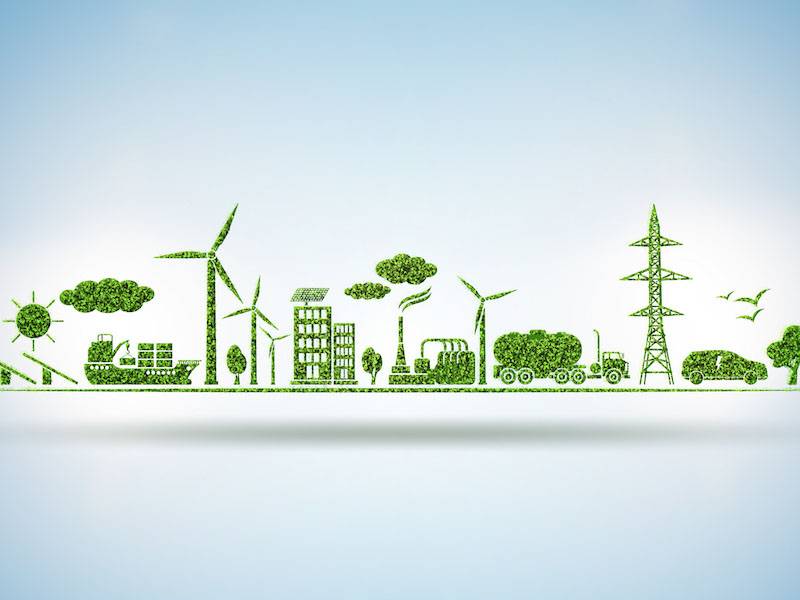IETA: "The Era of Climate Action is Now"

The International Emissions Trading Association (IETA) has just celebrated its 20th anniversary. A non-profit business association, based in Brussels, IETA was established in 1999 to serve businesses engaged in market-based solutions to tackle climate change.
IETA is dedicated to the objectives of the United Nations Framework Convention on Climate Change, the Paris Agreement and ultimately climate protection. Today, it is the leading voice of the business community on the subject of carbon markets. IETA continually promotes the establishment of effective emission trading systems that are demonstrably fair, open, efficient, accountable and consistent across national boundaries - while it advocates for maintaining societal equity and environmental integrity while establishing these systems.
IETA's 130+ member companies include some of the world's leading corporations in oil, electricity, cement, aluminium, chemical, and other industrial sectors; as well as leading firms in the data verification and certification, brokering and trading, legal, finance, and consulting industries.
On behalf of its members, IETA advocates for an emissions trading regime that results in real and verifiable greenhouse gas emission reductions, while balancing economic efficiency with environmental integrity.
“We contribute to the fight against climate change by promoting and supporting the implementation of ambitious emissions trading systems able to generate a strong and reliable carbon price to drive the shift towards less CO2-intensive technologies and to ultimately decarbonize our economies,” says Stefano De Clara, director of International Policy at IETA.
It’s a long story of climate action to fight against global warming. Emissions trading systems help countries and companies with less polluting emissions earn credits for their well behaviour and then sell them to others. All in all, emissions will eventually be reduced in this way.
“Emissions trading systems, by putting a price on carbon and by placing a limit to the overall emission levels, are a key policy tool to reduce CO2 emissions and meet climate goals. The price on carbon generated by an emissions trading system gives a clear signal that covered entities can internalize in their business strategy and investment decisions,” De Clara explains.
“With regard to the use of fossil fuels, a price on carbon makes the shift towards cleaner fuels and renewable energy more economically viable and will eventually lead to the phase out of fossil fuels to a level compatible with the long-term goal of the Paris Agreement, meaning reaching net zero emissions around 2050.”
For IETA, the emissions trading system space is quite lively at the moment and a lot will happen in the coming months. Just to mention a few key developments foreseen in the coming months:
- UN negotiations are expected to agree on rules for international carbon markets under the Paris Agreement at COP26, taking place in November;
- China will start operating its announced nation-wide emissions trading system in the coming months;
- As part of the European Green Deal, the EU will work on strengthening the 2030 target for the EU emissions trading system (ETS) and to align the system for the net-zero emissions goal by 2050;
- Emissions trading systems are expected to be implemented by more subnational jurisdictions in the United States and Canada;
- Several countries in Latin America and Asia, including Mexico, Colombia, Chile and Thailand, have committed to design and implement emissions trading systems in the coming months and years
“We plan to engage with policy makers in these jurisdictions to assist them with the implementation work that lays ahead. We will also help our members navigating these developments,” De Clara adds.
Obviously, challenges are innate in IETA’s work. “The biggest one at the moment is probably the fact that the fight against climate change is still not perceived as a key problem by everyone and, as a consequence, does not yet have the widespread support it needs.”
For the association, then, a key priority for the coming years will be to build widespread consensus for climate action and carbon pricing. It will be important to clearly communicate the benefits of emissions trading systems and build momentum for the implementation of ambitious climate change policies.
“Action against climate change will be at the forefront for every sector of the economy in the coming years and will involve every business. It will therefore be important to be prepared for the climate challenge to make sure to strive, and not lag behind, in the low carbon era.”
For More Info:
secretariat@ieta.org
www.ieta.org
Article included in our May issue of Hedquarters Magazine (#94)
Other Articles
About Us
Supported by the Union of International Associations (UIA), the International Association of Professional Congress Organisers (IAPCO) and the Interel Group, the global public affairs and association management consultancy, Headquarters Magazines serve the needs of international associations organising worldwide congresses.















